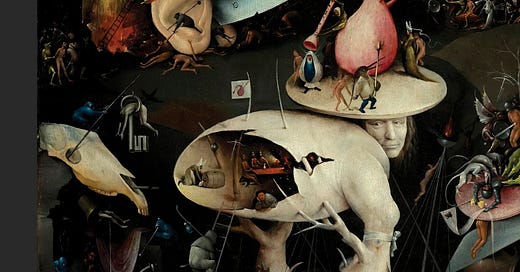Randy Fertel’s Winging It: The Pleasures And Perils Of Improvisation
Let’s say you lived, for example, in California, or more particularly in the progressive community that is Santa Monica, you could well be inclined to wonder:
WHAT THE F*CK JUST HAPPENED?
Or even WHY?
I can’t tell you. No one really can. But I do have a theory. Maybe not “The” reason, but certainly “a” reason.
One night, about a month ago, I went to a book event at Diesel Books in Santa Monica to hear Randy Fertel speak about his new book, Winging it: Improv’s Power and Peril in the Time of Trump (available at fertel.com) is Fertel’s wide-ranging examination of improvisation in popular culture.
Fertel is a literary critic of wide and divergent knowledge who spent some thirty years on a discursive investigation that found book form in A Taste for Chaos, a 2015 work that elucidates and often free-associates what is art in improvisation across every possible incarnation or association.
Fertel appreciates that when one mentions improvisation, most people think of a form of comedy, or of certain sublime moments in Jazz. However, improvisation has been with us for as long as humans have had to come up with seemingly spontaneous reactions, comments, excuses, lies, or fashion instant solutions to pressing problems. Improvisation leads to wonderful flights of fancy, verbal, musical, theatrical, some lifesaving, some enlightening, some transcendent, some merely entertaining, but some so compelling and distracting as to be dangerous.
I will add that Fertel hails from New Orleans where improvisation is a way of life and, given that his mother is the Ruth of Ruth’s Chris Steak House, one can see his own literary and academic career as an improvisation.
Just as Nancy Mitford divided the world into U and Non U, and Lenny Bruce divided it into Jewish and Goyish, Fertel distinguishes between the truly spontaneous and those works which appear improvised (even when they are the result of much preparation and revision) such as Kerouac’s On The Road (which was revised over a six-year period), or a Robin Williams stand up performance (which was often rehearsed).
Finally – finally, after publishing A Taste of Chaos in 2015, Fertel thought he’d put the subject of improvisation to bed.
Then a few short months later, Donald J. Trump rode down the escalator in the lobby of Trump Tower to announce what became his successful bid for the Presidency. Fertel saw the logic-defying success of the 45th President as explained by one thing: Improvisation – and knew he had to write a new book.
Fertel’s exegesis, Winging It: Improv’s Power and Peril in the Time of Trump, was published before the election. I must confess that writing about it before the election would have appeared smart. However, given, the recent election results, it would also have been evidence of the arrogance inherent believing that knowing who Trump is or having some insight into what he does would make a difference to those who proved that it matters not at all.
To explain why, in Winging It, Fertel reaches back in time to the Mesoamerican character of The Trickster. The Trickster is known for his ability to seduce, to entertain, to shapeshift when necessary. In many tales, the Trickster is a heroic figure who defeats evil. However, as Fertel points out, The Trickster can be malevolent and an agent of Chaos. You get the point.
Reading Fertel’s book made me think of that moment in Howard Stern’s memoir, Private Parts (and the movie made of it), when the radio executive explains that the people who like Stern listened to him, on average, for three hours a day. And the number one reason they gave is, “because they never knew what he was going to say next.” And the people who hated him, listened for four hours a day, and the number one reason for them was, “they never knew what he was going to say next.”
I will also note that what makes the most money in TV, one of the only things that people are willing to sit through commercials for, is live sports because you never know how it’s going to turn out. In this context, it doesn’t matter how you feel about what Trump says. In fact, he knows that the more outrageous the better. Why? Because you never know what he’s going to say next.
To Fertel’s point, Trump is an improv that 74 million people want to keep watching; and that the other 70 million voters can’t avoid watching.
For the next four years, at least, we all be Winging it.





